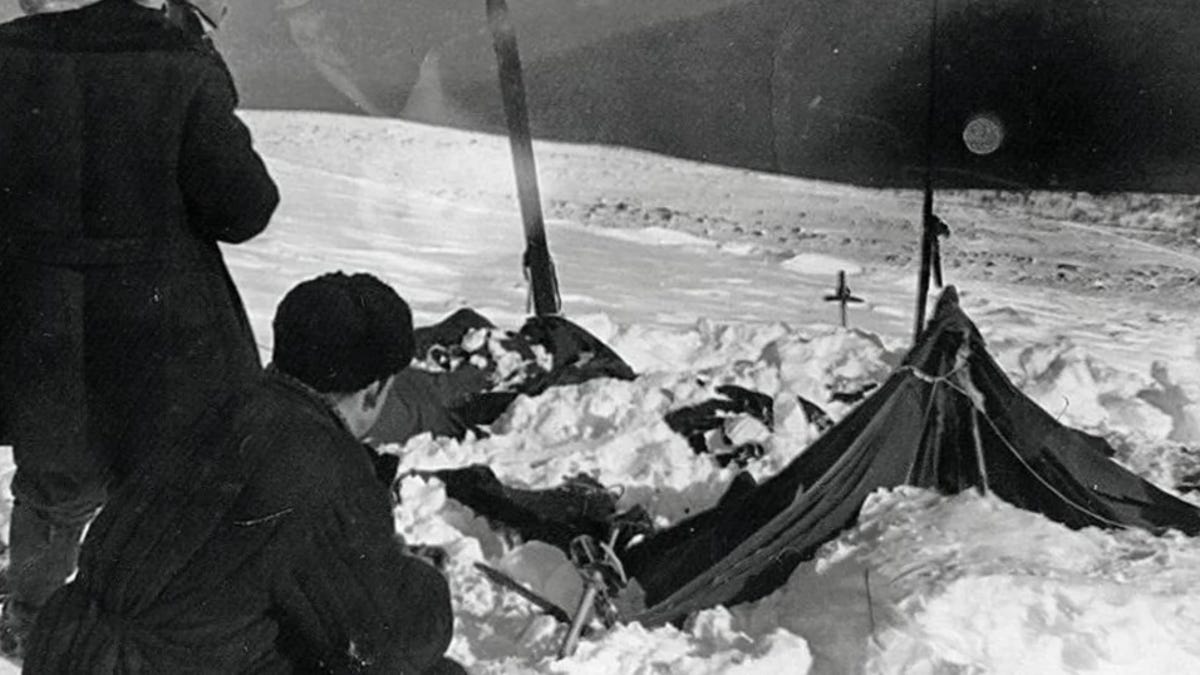New Evidence May Better Explain Mysterious Deaths at Dyatlov Pass
A pair of scientists bolster their case that an avalanche killed nine hikers on Russia's Dyatlov Pass in 1959.

The mystery of the Dyatlov Pass has raised questions for over 60 years.
Yetis, nuclear tests, aliens, katabatic winds and infrasound-induced panic have all been invoked in the quest to uncover what happened to nine hikers in Russia's northern Urals in 1959. A group of students, led by Igor Dyatlov, set out for the snowy mountains on Jan. 28, 1959. They set up camp by digging a platform into a slope and pitching a tent. Then... they fled and died in terrible ways.
When their bodies were eventually found, it became clear they had cut out of their tent from the inside and abandoned their equipment in the middle of the night. Some of them had suffered violent injuries to the chest and one hiker had fractures in his skull. Six froze to death. But what happened to them? And why did they abandon their tent? That mystery had endured for decades.
Last year, it seemed to have been solved -- with a little bit of science and a little bit of Disney magic. Two researchers, Alexander Puzrin and Johan Gaume, published work suggesting it was not aliens or yetis that killed the group, but an unusual and rare avalanche known as a slab avalanche. Using some scientific models, they suggested the conditions on the night of the incident, Feb. 1, likely saw an accumulation of snow building up just behind where the hikers set up their tent. This snow then slid down onto the tent and some of the group.
Not everyone was convinced and questions remained. One particular objection kept coming up -- that the area was not prone to avalanches.
A year later, the pair are bolstering their case about what happened in in the area, which is now known as Dyatlov Pass, in a new commentary published Thursday in journal Nature Communications Earth & Environment, where they detail three follow-up expeditions into the Urals they took in March 2021, September 2021 and January 2022.
They were inspired by some of the negative responses to their initial slab avalanche theory that they received in 2021 and set out to show the region does have the characteristics they used in their model.
Their final visit, exactly 63 years after the hikers were last seen alive, was the most important. Two experienced mountain guides, Oleg Demyanenko and Dmitriy Borisov, visited the area on Jan. 28 and experienced conditions similar to those experienced by the nine hikers in 1959. They found traces of slab avalanches less than two miles from the Dyatlov group tent and -- critically -- evidence of these avalanches disappeared within an hour.
Images taken by mountaineer Dmitriy Borisov on Jan. 29, 2022, showing slab avalanches on Dyatlov Pass.
It wasn't until weeks after they vanished in 1959 that the hikers were finally located by a rescue team. By that time, any evidence of a slab avalanche would have been invisible, as wind-transported snow covered up the hole in the mountain. It also helps explain why avalanches are not considered common on Dyatlov. Evidence for them disappears too quickly.
The area is "clearly avalanche prone, and the avalanche danger on the night of February 1st, 1959 was real," the pair write.
The commentary concludes with Puzrin and Gaume stating this is not the final word on the story. Though they believed that their part in the story ended with the 2021 publication ("we did not want to spend the rest of our lives trying to solve the Dyatlov Pass mystery," they write), now they're not so sure. I suspect it won't be the last time we hear from them.

